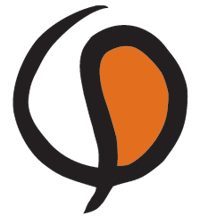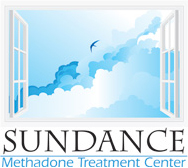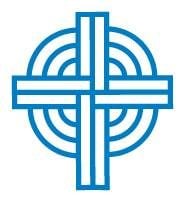
Chicago Lakeshore Hospital Chemical Dependence Program
Drug Rehab Center in Chicago, Illinois
- Substance Abuse
- Opioid Addiction
- Drug Addiction
Chicago Lakeshore Hospital Chemical Dependence Program is a comprehensive inpatient addiction treatment center in Chicago with evidence-based therapies, individualized care plans, and a holistic approach to recovery.
About This Chicago, IL Facility
The Chicago Lakeshore Hospital Chemical Dependence Program has been providing comprehensive care to those struggling with substance abuse and addiction in Chicago, Illinois, for over three decades. As one of the leading providers of chemical dependency and addiction care in the nation, the hospital offers a multidisciplinary team approach to help individuals address all aspects of their condition. Specializing in evidence-based treatment and medications, the program focuses on providing personalized treatment plans, tailored to each patient's needs. The hospital is licensed by the Illinois Department of Human Services, and it is fully accredited by the Joint Commission, a national healthcare accreditation organization.
At Chicago Lakeshore Hospital, they offer comprehensive services for clients struggling with substance use and dependence, as well as co-occurring mental health disorders. Treatment services include individual counseling, group therapy, educational workshops, medication management, and family therapy. They employ evidence-based practices such as Cognitive Behavioral Therapy (CBT) and Dialectical Behavioral Therapy (DBT) to assist clients in gaining insight into their behavior and developing the necessary tools to make positive changes. Staff members are highly trained and certified in both addiction counseling and mental health treatment, and clients are closely monitored throughout their treatment.
Genders
Ages
Modality
Additional
Accreditations

JCAHO
Conditions and Issues Treated
Substance abuse refers to the intensive and inappropriate use of psychoactive substances. These include illegal drugs, alcohol, and even the excessive use of prescription drugs. Overuse of these substances leads to severe physical or psychological dependence.
Substance abuse is treatable and the duration of treatment and most successful sobriety can require weeks or months of professional care at Chicago Lakeshore Hospital Chemical Dependence Program in Chicago.
Opioid addiction treatment facilities like Chicago Lakeshore Hospital Chemical Dependence Program support people struggling with opioid dependency, which covers illegal and prescription opioids. People often abuse prescription opioids to get high instead of adhering to a medical provider’s directions. Addiction forces people to crave for opioids impulsively without factoring in the dangers these drugs bring to them.
Most opioid addiction treatment plans include detoxification and subsequent medications to ease the process. However, that’s only the beginning. Behavioral therapies and counseling are also necessary to resolve the root cause of addiction. This overall approach decreases the likelihood of falling off the wagon. In some instances, therapies can be done at home.
Levels of Care Offered
This center offers a variety of custom treatment tailored to individual recovery. Currently available are Aftercare Support, Detox, Drug Rehab, Inpatient, Intensive Outpatient, Outpatient, Partial-Hospitalization, Residential, with additional therapies available as listed below.
Detoxification is the first step in drug addiction treatment. A controlled environment where symptoms can be managed with medication and close observation is provided by drug detoxification. Detoxification is an essential step in the recovery process, but it is also one of the most dangerous. Due to the potential danger, it’s critical to understand what detoxification is and how to complete it safely.
Detoxification usually includes:
- Medical supervision.
- Medication to ease withdrawal symptoms.
- Drug testing to track progress.
- Counseling.
Inpatient treatment for addiction is generally not as scary as it might sound. It is a way to find recovery while being in a supportive and controlled environment. The duration of treatment at Chicago Lakeshore Hospital Chemical Dependence Program in Chicago can be different based on each individual. Many can leave after 28 days; some may stay a few months, and others may stay six months or longer.
Chicago Lakeshore Hospital Chemical Dependence Program offers an Intensive Outpatient Program is for those who need intensive care but prefer to spend the majority of their time in the comfort of their own home. The rehabilitation services differ in length and intensity. They are customized to meet the needs of the patient.
When remaining at their job in Chicago, or continuing their studies, the individual may live with their family while utilizing Chicago Lakeshore Hospital Chemical Dependence Program‘s outpatient services. Treatment requires counseling the patient at the individual level, in a group setting, about substance addiction, drugs, and therapy sessions.
Residential treatment programs are those that offer housing and meals in addition to substance abuse treatment. Rehab facilities that offer residential treatment allow patients to focus solely on recovery, in an environment totally separate from their lives. Some rehab centers specialize in short-term residential treatment (a few days to a week or two), while others solely provide treatment on a long-term basis (several weeks to months). Some offer both, and tailor treatment to the patient’s individual requirements.
Help with aftercare applies to the follow-up care provided after the initial recovery program offered by Chicago Lakeshore Hospital Chemical Dependence Program in Chicago, IL. The level of support for aftercare plays a vital role in avoiding relapse and in maintaining sobriety. Aftercare support is tailored according to the patient’s needs.
Chicago Lakeshore Hospital Chemical Dependence Program‘s Therapies & Programs
Couples therapy reduces the dysfunctional behavior in a relationship that may cause addiction. It can help one or both members of the couple. It targets addiction and it can make for a healthier relationship.
Patients who receive generous support from their loved ones have better chances of completing their recovery. Genetics play a role when it comes to addiction, so it’s better to approach the problem as a unit. Family members can help an individual avoid addiction triggers and guide him or her in making lifestyle changes.
Group therapy is a type of counseling at Chicago Lakeshore Hospital Chemical Dependence Program in Chicago, IL that occurs between a bunch of strangers. The goal of group therapy sessions is to foster hope and a sense of belonging. It also helps to have people who can relate to what you’re going through. Good behaviors can also be contagious.
As a means of managing pain that has plagued them in the past, many individuals turn to drugs and alcohol. Assault, negligence, the loss of a loved one, and other unfortunate events may involve trauma. This treatment, offered and administrated by Chicago Lakeshore Hospital Chemical Dependence Program in Chicago, IL provides individuals the resources to cope with past traumas healthily.
Alcoholics Anonymous is the original 12-Step program that established the model that other 12-Step programs, like Narcotics Anonymous, follow. 12-Step programs are support groups that are led and run by members of each group. These groups use the “Big Book,” which contains the 12-Step philosophy of recovery and ongoing abstinence from drugs or alcohol.
Contingency Management (CM) is based on the principle that consequences influence the behaviors of an individual. It promotes desired behavior by giving rewards while discouraging unwanted behaviors. CM is used for individuals who need therapy for more than 3 months. It has the advantage of being implemented by family members.
Payment Options Accepted
For specific insurance or payment methods please contact us.
Is your insurance accepted?
Ask an expert, call (888) 674-0062
Additional Details
Specifics, location, and helpful extra information.
Chicago, Illinois 60640 Phone Number(773) 878-9700 Meta DetailsUpdated November 25, 2023
Staff Verified
Patient Reviews
There are no reviews yet. Be the first one to write one.
Chicago, Illinois Addiction Information
In 2016, more than 2,350 Illinoisans died from drug overdoses. More than 5,500 deaths annually occur in Illinois due to the abuse of alcohol and other drugs. 7.17% of Illinois residents reported using illicit drugs in the past month (2018). Substance abuse costs the state approximately $3.5 billion every year.
Drug misuse can lead to other serious health problems, including HIV/AIDS or hepatitis C infection and liver disease. Chicago's main drugs of abuse include heroin, cocaine, and methamphetamine. Field sobriety tests can be used to determine if someone is driving under the influence of drugs or alcohol. There are about 872 drug treatment centers in the city, and the number of people seeking help for addiction continues to rise.
Treatment in Nearby Cities
- Gurnee, IL (30.5 mi.)
- East Peoria, IL (134.8 mi.)
- South Holland, IL (25.6 mi.)
- Lake Forest, IL (22.2 mi.)
- Geneseo, IL (134.2 mi.)
Centers near Chicago Lakeshore Hospital Chemical Dependence Program



The facility name, logo and brand are the property and registered trademarks of Chicago Lakeshore Hospital Chemical Dependence Program, and are being used for identification and informational purposes only. Use of these names, logos and brands shall not imply endorsement. RehabNow.org is not affiliated with or sponsored by Chicago Lakeshore Hospital Chemical Dependence Program.





